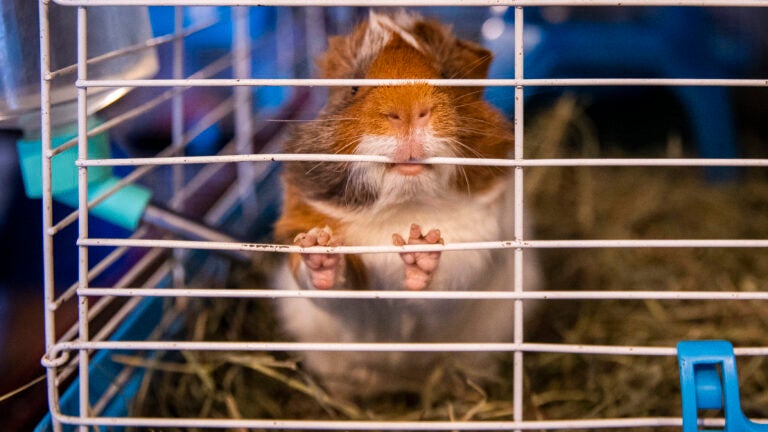Newsletter Signup
Stay up to date on all the latest news from Boston.com

In an effort to decrease the number of guinea pigs being abandoned and surrendered, the Boston City Council voted Wednesday to ban the sale of the animals in the city’s pet shops.
City officials first banned the sale of dogs, cats, and rabbits in pet shops in 2016. Their sale is still permitted in cooperation with an animal shelter or animal rescue organization. Earlier this year, Councilor Liz Breadon filed a proposal to add guinea pigs to that list.
Breadon said Wednesday she was approached by the MSPCA and the Animal Rescue League of Boston with concerns about guinea pigs and the laws governing their sale.
“We’re not saying that families shouldn’t adopt guinea pigs,” she said. “There are many guinea pigs available in our shelters. If folks really want to have a guinea pig in the family, there’s lots of opportunities to do that and we encourage people to do that.”
But, according to the ordinance, a big portion of the guinea pigs sold at pet shops come from large-scale, out-of-state commercial breeding facilities and brokers. More than 60% of those surrendered by owners to MSPCA shelters were originally acquired at pet stores.
MSPCA-Angell has tracked a significant increase in the number of guinea pigs in its shelters over the past decade. This number rose from 314 in 2012 to 478 in 2022, an increase of more than 50%, the organization said. Adoption interest is lower for them than cats or dogs, resulting in the animals having much longer stays in shelters. They average 29 days in MSPCA-Angell adoption centers, whereas cats average 13 days and dogs average 18 days.
Sales were also impacted by the pandemic. As families isolated themselves, adoption rates increased. But now, many of those guinea pigs are being dropped off at shelters that are slowly becoming inundated with the furry rodents.
Animal shelters in New York City drew attention to the issue last year, prompting the New York City Council to approve a ban on the sale of guinea pigs in pet shops in April.
MSPCA adoption centers in Massachusetts reported that more than 210 guinea pigs and rabbits has been received over a three month span earlier this year, prompting the organization to temporarily waive adoption fees in the hopes of finding new homes for the animals.
Breadon said earlier this year that Boston officials had tracked a rise in the number of stray guinea pigs being reported around the city over the past three years. They have been found wandering in many neighborhoods, such as Allston, Fenway, Dorchester, Roxbury, Mattapan, and Mission Hill.
The animals have an average lifespan of 5 to 7 years, longer than many other small pets such as hamsters, gerbils, mice, or rats. They can be a big burden on shelters.
“Even though guinea pigs are sort of known as affordable for purchase, their medical bills and requirements can actually go up into the thousands. They are an expensive animal for these shelters to care for and they also stay there twice as long as other animals that the shelters hold as far as adoption rates,” Councilor Ricardo Arroyo said Wednesday.
Stay up to date on all the latest news from Boston.com
Stay up to date with everything Boston. Receive the latest news and breaking updates, straight from our newsroom to your inbox.
Conversation
This discussion has ended. Please join elsewhere on Boston.com